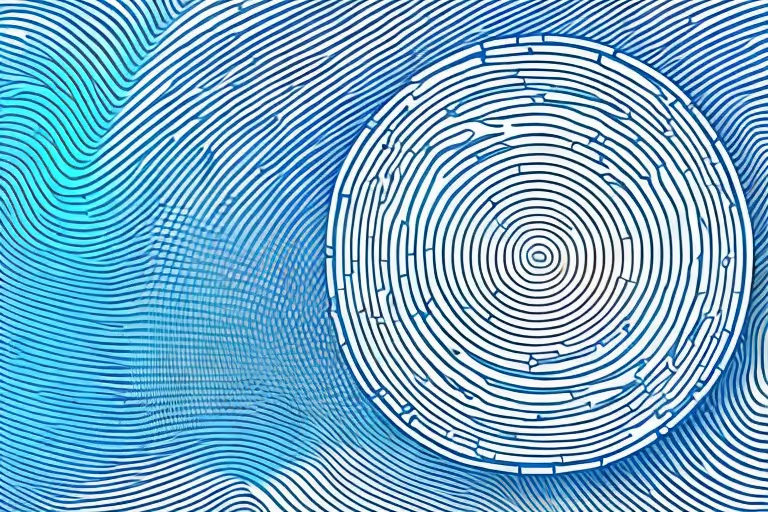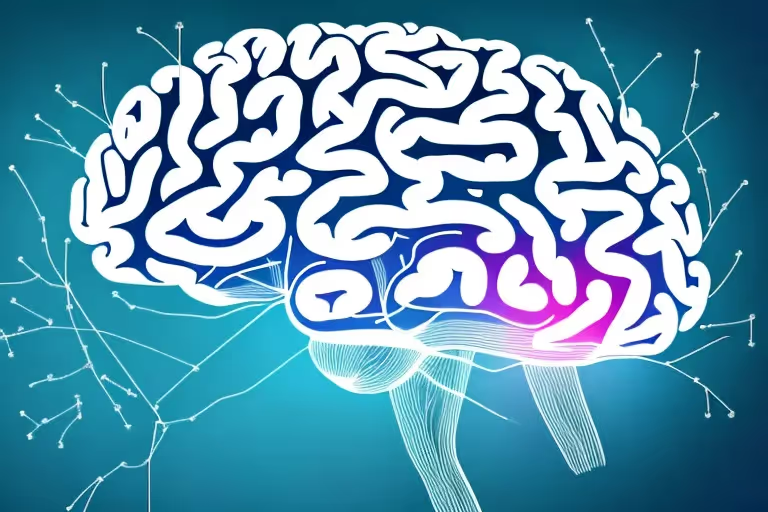Night Owl Syndrome, also known as Delayed Sleep Phase Disorder (DSPD), is a condition that affects individuals who naturally prefer staying awake and being active during the late evening and early morning hours. This article aims to shed light on this intriguing phenomenon and provide valuable insights into its causes, effects, and management strategies.
What is Night Owl Syndrome?
Night Owl Syndrome, as the name suggests, refers to a pattern of sleep behavior characterized by a delayed sleep-wake cycle. Unlike early birds who find it easy to adapt to a conventional sleep schedule, night owls struggle to fall asleep at a socially acceptable hour, resulting in sleep deprivation and difficulties in meeting daytime obligations. Let's delve deeper into the concept of Night Owl Syndrome and gain a comprehensive understanding of its implications.
Defining Night Owl Syndrome
At its core, Night Owl Syndrome represents a preference for eveningness, where individuals experience a natural inclination to stay awake and engage in various activities during the nighttime hours. This inclination often manifests as a delayed sleep onset, typically starting after midnight or even in the early hours of the morning. People with Night Owl Syndrome find it challenging to fall asleep earlier, regardless of how tired they might feel.
This delayed sleep phase can lead to a misalignment between an individual's internal body clock, known as the circadian rhythm, and the external demands of society. Consequently, night owls often end up facing sleep disturbances, difficulty waking up in the morning, and subsequent daytime sleepiness.
Common Symptoms and Signs
Several telltale signs can help identify Night Owl Syndrome in individuals. Repeatedly struggling to fall asleep before 2 a.m., feeling alert and energized during late evening hours, and experiencing difficulties waking up early in the morning are some of the most common symptoms. Furthermore, night owls may often feel inclined to socialize or engage in activities late at night, which can further disrupt their sleep patterns.
Despite their inherent inclination towards eveningness, night owls often find themselves at odds with societal norms that prioritize early mornings and daytime productivity. This disconnect can lead to chronic sleep deprivation, mood disturbances, and a decreased overall sense of well-being.
Causes of Night Owl Syndrome
Night Owl Syndrome can arise due to a combination of genetic, lifestyle, and environmental factors. Understanding these underlying causes can help individuals navigate and manage their sleep patterns effectively. Let's explore these factors further:
Genetic Factors
Research has shown that genetics play a significant role in determining an individual's sleep preferences and circadian rhythm tendencies. Certain genes, such as the PER3 gene, have been associated with delayed sleep patterns and a predisposition towards being a night owl. These genetic variations influence an individual's internal body clock, making it more challenging for them to conform to conventional sleep schedules.
Lifestyle Factors
A person's lifestyle choices and habits can also contribute to Night Owl Syndrome. Factors such as irregular sleep patterns, excessive screen time before bed, caffeine consumption, and inconsistent meal times may disrupt the natural sleep-wake cycle and exacerbate the preference for late nights.
A sedentary lifestyle and lack of physical activity can also impact an individual's sleep patterns. Regular exercise, on the other hand, promotes better sleep hygiene and aids in resetting the internal body clock.
Environmental Factors
The environment in which an individual lives and operates can influence their sleep patterns as well. Factors such as artificial lighting, noise pollution, work demands, and social obligations can all contribute to a person's tendency to become a night owl. Living in a constantly stimulating environment may encourage individuals to stay up later and engage in activities that further delay sleep onset.
The Science Behind Night Owl Syndrome
Understanding the scientific mechanisms behind Night Owl Syndrome can shed light on why certain individuals lean towards eveningness and struggle with early mornings. Let's explore the key aspects that contribute to this fascinating phenomenon:
The Role of Circadian Rhythms
The circadian rhythm is an internal biological process that regulates various physiological and behavioral functions in a roughly 24-hour cycle. It helps synchronize every cell and organ in the body, including sleep-wake patterns, metabolism, hormone production, and cognitive functions. Night Owl Syndrome arises when an individual's circadian rhythm is misaligned with societal norms, leading to a preference for later sleep time.
Melatonin and Sleep Patterns
Melatonin, often referred to as the "sleep hormone," plays a crucial role in regulating sleep-wake cycles. It is naturally released by the brain in response to darkness, promoting drowsiness and preparing the body for sleep. Night owls may experience a delay in melatonin production, leading to difficulties falling asleep at an earlier hour. This delayed release further reinforces their preference for late nights and contributes to their delayed sleep-wake cycle.
Impact of Night Owl Syndrome on Health and Well-being
The consequences of Night Owl Syndrome extend beyond sleep disturbances. Let's explore the various areas in which night owls may experience notable impacts on their health and well-being:
Physical Health Consequences
The misalignment between a night owl's sleep-wake cycle and societal demands can have adverse effects on physical health. Sleep deprivation, which is a common consequence of Night Owl Syndrome, may increase the risk of various health conditions, including obesity, diabetes, cardiovascular diseases, and compromised immune system functioning. It is crucial for individuals to prioritize healthy sleep habits to mitigate these potential health risks.
Mental Health Implications
Night Owl Syndrome can also have significant implications for mental health. Sleep deprivation and the resulting daytime sleepiness can contribute to feelings of irritability, mood swings, and difficulty in regulating emotions. Moreover, the societal pressure to conform to a conventional sleep schedule may lead to stress, anxiety, and a decreased overall sense of well-being. Being aware of these potential mental health implications is vital for individuals with Night Owl Syndrome to seek appropriate support and develop coping strategies.
Managing and Treating Night Owl Syndrome
While Night Owl Syndrome may present unique challenges, there are various strategies to help individuals manage and treat the condition effectively. Let's explore some of these approaches:
Sleep Hygiene Practices
Developing and maintaining good sleep hygiene practices is essential for managing Night Owl Syndrome. This includes establishing a consistent sleep schedule, creating a sleep-conducive environment, avoiding excessive screen time before bed, and practicing relaxation techniques to promote better sleep quality. Additionally, incorporating a wind-down routine and ensuring regular exposure to natural light during daytime hours can help regulate the internal body clock.
Light Therapy and Chronotherapy
Light therapy involves strategically exposing oneself to bright light, typically in the morning, to help shift the circadian rhythm and promote earlier sleep onset. This technique can be particularly beneficial for individuals with Night Owl Syndrome who struggle with morning awakenings. Chronotherapy, on the other hand, involves gradually shifting sleep and wake times in small increments to align with a desired schedule. These approaches should be undertaken with the guidance of a healthcare professional to ensure safe and effective implementation.
Medication and Supplements
In certain cases, healthcare professionals may prescribe medication or supplements to aid in managing Night Owl Syndrome. These interventions may include melatonin supplements to help regulate sleep-wake patterns or medication that promotes alertness during daytime hours. It is crucial to consult with a healthcare provider before initiating any medication or supplement regimen.
In conclusion, Night Owl Syndrome, or Delayed Sleep Phase Disorder, is a fascinating condition that affects individuals with a natural inclination towards late nights and delayed sleep onset. Understanding the causes, effects, and management strategies associated with this phenomenon is essential for individuals to optimize their sleep patterns and improve their overall well-being.
For those seeking additional support in cultivating healthy sleep habits, the Aura Health App offers a range of features designed to promote relaxation, mindfulness, and better sleep. With its soothing guided meditations, calming sounds, and personalized sleep tracking, the Aura Health App can assist individuals with Night Owl Syndrome in establishing healthier sleep routines and enhancing their overall sleep experience.
Aura is Your All In One App for Meditation, Mindfulness Wellbeing
Find peace every day with one app for your whole well-being. There is no one-size-fits-all solution to mental well-being. Aura is the first all-in-one wellness app that learns how to best help you. Discover an endless library of expert-created tracks for your well-being, all taught by the world’s best coaches, therapists, and storytellers. With Aura's personalized recommendations, you can find peace every morning, day and night.



.webp)






.avif)

%20(1).avif)


.avif)
.avif)
.webp)


.avif)


















































































































.avif)

















.svg)









